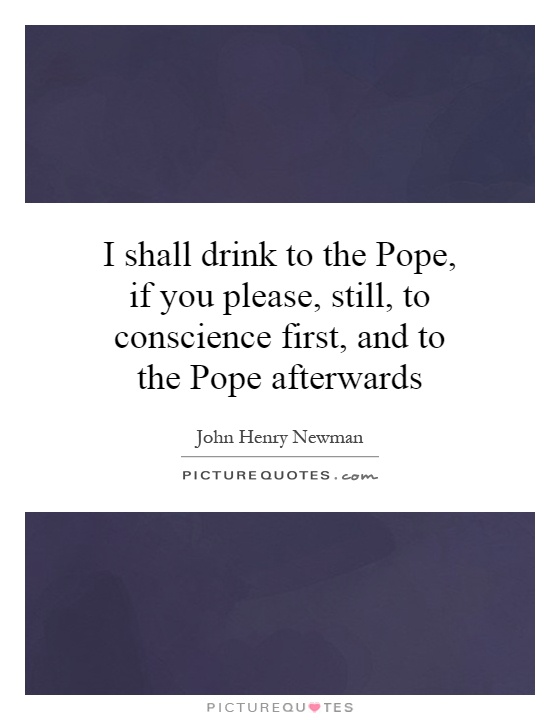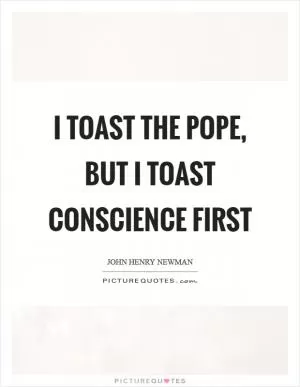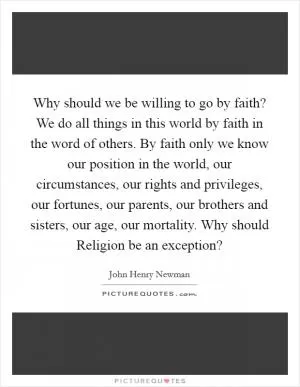I shall drink to the Pope, if you please, still, to conscience first, and to the Pope afterwards

I shall drink to the Pope, if you please, still, to conscience first, and to the Pope afterwards
John Henry Newman, a prominent figure in the 19th-century Catholic Church, was known for his unwavering commitment to conscience and his willingness to challenge authority when necessary. His famous quote, "I shall drink to the Pope, if you please, still, to conscience first, and to the Pope afterwards," encapsulates his belief in the primacy of individual conscience in matters of faith and morality.Newman's statement reflects his belief that one's conscience should always be the ultimate guide in making decisions, even when those decisions may conflict with the teachings or directives of the Pope or other religious authorities. This emphasis on conscience as the arbiter of right and wrong was a central theme in Newman's writings and speeches, and it set him apart from many of his contemporaries who viewed obedience to authority as the highest virtue.
Newman's commitment to conscience first and foremost was rooted in his understanding of the dignity and autonomy of the individual person. He believed that each person has a unique relationship with God and a responsibility to follow their own conscience in discerning the truth. This belief was a radical departure from the prevailing view of the time, which often emphasized blind obedience to ecclesiastical authority.
At the same time, Newman's statement also demonstrates his respect for the office of the Pope and the importance of unity within the Church. While he believed in the right of individuals to follow their conscience, he also recognized the need for a central authority to guide and govern the faithful. By acknowledging the Pope after conscience, Newman was affirming the importance of both individual autonomy and communal unity in the life of the Church.












 Friendship Quotes
Friendship Quotes Love Quotes
Love Quotes Life Quotes
Life Quotes Funny Quotes
Funny Quotes Motivational Quotes
Motivational Quotes Inspirational Quotes
Inspirational Quotes